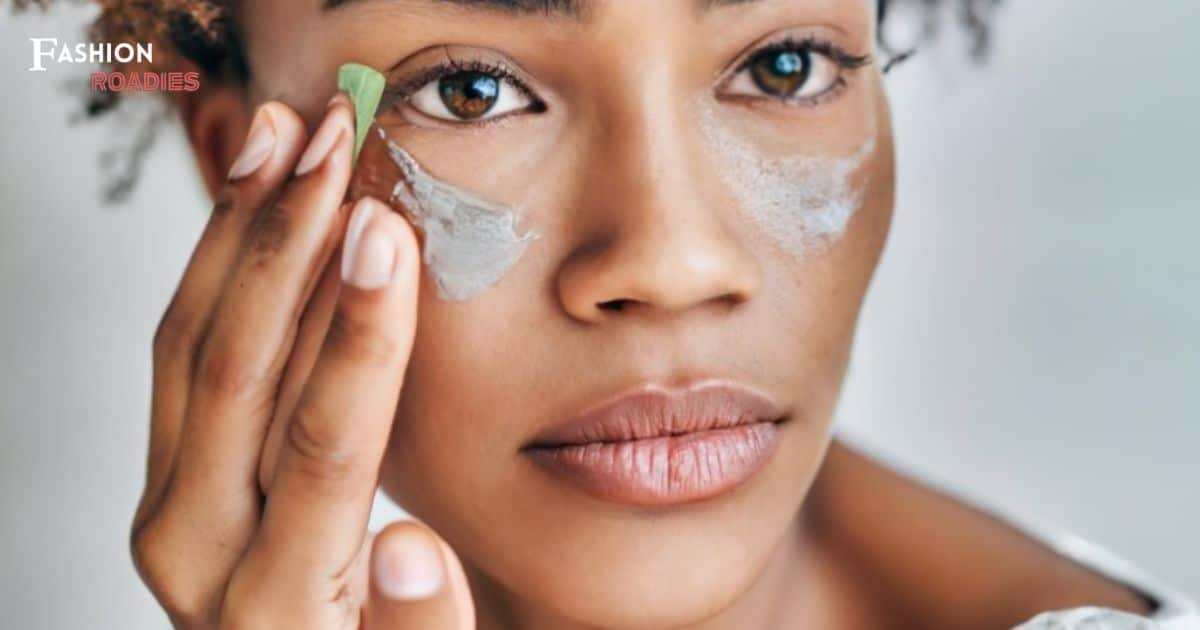Skin care products are meant to improve the appearance and health of our skin. However, sometimes these products can cause adverse reactions, leading to discomfort and distress. This article aims to provide an informative guide on how to treat allergic reactions caused by skin care products. By identifying the allergen, taking immediate steps for relief, utilizing over-the-counter treatments or natural remedies, seeking medical attention when necessary, and implementing preventive measures for future occurrences, individuals can effectively address and manage these allergic reactions. The information presented here will empower readers with knowledge to regain control over their skin health and well-being.
Key Takeaways
- It is important to identify the specific allergen causing the reaction through a systematic approach and evaluation of medical history and affected area.
- Immediate steps should be taken to cease the use of the product, identify and avoid other products with similar ingredients, and cleanse the affected area gently with mild soap and water.
- Soothing the skin can be achieved through the use of cool compresses or ice packs, gentle moisturizers, and avoiding scratching or picking at the affected area.
- Over-the-counter treatments such as topical corticosteroids and antihistamines can be used to reduce inflammation and alleviate allergic reaction symptoms, but it is important to consult a healthcare professional before using any treatment.
Identifying the Allergen
One important step in the treatment of allergic reactions to skin care products is identifying the specific allergen responsible for the adverse reaction. This process requires a systematic approach and careful evaluation of both the patient’s medical history and a thorough examination of the affected area. It is crucial to determine whether the reaction is due to an irritant or an actual allergy, as this will guide further management strategies. Patch testing, which involves applying small amounts of potential allergens onto the skin and observing for any delayed reactions, can be helpful in pinpointing the specific culprit. Additionally, laboratory tests such as blood tests or skin prick tests may be employed to identify common allergens. Identifying the allergen responsible for an allergic reaction allows healthcare professionals to provide targeted advice on avoiding exposure and selecting appropriate alternative skincare products, thus reducing future occurrences and providing relief for patients seeking optimal skin health.
Immediate Steps to Take
To address an adverse response to a cosmetic item, it is essential to promptly implement appropriate measures. When faced with an allergic reaction to a skin care product, immediate steps should be taken to alleviate the symptoms and prevent further complications. These steps include:
- Cease using the product immediately
- This will help minimize exposure to the allergen and prevent worsening of the reaction.
- It is important to identify and avoid other products that may contain similar ingredients.
- Cleanse the affected area gently
- Using mild soap and lukewarm water can help remove any remaining traces of the allergen from the skin.
- Pat dry with a clean towel, avoiding rubbing which may further irritate the skin.
Soothing the Skin
Implementing appropriate measures to alleviate symptoms and promote skin recovery is crucial when addressing an adverse response to a cosmetic item. When experiencing an allergic reaction, it is important to soothe the skin to minimize discomfort and aid in healing. One effective way to do this is by applying cool compresses or ice packs to the affected area. This can help reduce inflammation and provide temporary relief from itching or burning sensations. Additionally, using gentle, fragrance-free moisturizers can help restore the skin’s barrier function and prevent further irritation. It is essential to avoid scratching or picking at the affected area as this can worsen symptoms and increase the risk of infection. By implementing these soothing measures, individuals can facilitate the healing process and prepare for over-the-counter treatments that may be necessary for more persistent symptoms.
Transition: In cases where home remedies are not sufficient, over-the-counter treatments can provide additional relief for allergic reactions caused by skincare products.
Over-the-Counter Treatments
Over-the-counter treatments are commonly utilized as an additional measure for alleviating symptoms associated with adverse responses to cosmetic items. These treatments offer accessible options for individuals who may not have immediate access to medical professionals or prescription medications. When considering over-the-counter treatments, it is crucial to prioritize products that contain ingredients known for their soothing and anti-inflammatory properties. Some recommended over-the-counter treatments for allergic reaction to skin care products include:
- Topical corticosteroids: These creams or ointments help reduce inflammation and itching.
- Antihistamines: Oral antihistamines can alleviate itching and other allergic reaction symptoms.
- Non-sedating antihistamines: These are preferred when drowsiness needs to be avoided.
- Sedating antihistamines: These provide relief from severe itching but may cause drowsiness.
It is important to consult a healthcare professional before using any over-the-counter treatment, as they can provide guidance on the most appropriate option based on individual circumstances.
Natural Remedies for Allergic Reactions
Natural remedies for alleviating symptoms associated with adverse responses to cosmetic items have gained popularity due to their potential soothing and anti-inflammatory properties. These remedies are often sought after by individuals who desire a more natural approach to skincare and prefer to avoid the use of synthetic or chemical-based products. Some commonly recommended natural remedies include aloe vera, chamomile, coconut oil, oatmeal baths, and witch hazel. Aloe vera has been used for centuries for its healing properties and can help reduce redness and inflammation. Chamomile is known for its calming effects on the skin and can provide relief from itching and irritation. Coconut oil acts as a moisturizer and helps repair the skin’s barrier function. Oatmeal baths can soothe irritated skin while witch hazel has astringent properties that can help reduce swelling. While these natural remedies may offer temporary relief from allergic reactions, it is important to consult with a healthcare professional if symptoms persist or worsen.
When to Seek Medical Attention
Determining the appropriate time to seek medical attention is crucial in managing adverse responses to cosmetic items. Allergic reactions to skin care products can range from mild irritations to severe symptoms requiring immediate medical intervention. It is important to be aware of the signs that indicate when seeking medical attention is necessary:
- Severe swelling: If the affected area becomes significantly swollen, it may indicate a more serious allergic reaction.
- Difficulty breathing: Any difficulty in breathing should be considered a medical emergency and requires immediate attention.
- Wheezing or shortness of breath
- Tightness in the chest
When experiencing any of these symptoms, it is recommended to consult a healthcare professional promptly. Timely intervention can help prevent further complications and ensure proper treatment for individuals with adverse reactions to cosmetic items.
Preventing Future Reactions
Now that you are aware of when to seek medical attention for an allergic reaction to a skin care product, it is important to focus on preventing future reactions. Taking preventive measures can help minimize the risk of experiencing another allergic reaction. First and foremost, read the ingredient labels carefully before purchasing any skin care product to identify potential allergens. It is advisable to perform a patch test on a small area of your skin before applying a new product all over. This can help identify any adverse reactions before full application. Additionally, consider using fragrance-free and hypoallergenic products, as these are less likely to trigger allergies. Regularly moisturizing your skin can also improve its barrier function and reduce sensitivity. Lastly, consult with a dermatologist who can recommend suitable products based on your specific skin type and needs. By implementing these preventive measures, you can work towards reducing the likelihood of future allergic reactions and promoting healthier skin.
Frequently Asked Questions
Can an Allergic Reaction to a Skin Care Product Be Mistaken for a Regular Skin Irritation or Rash?
Allergic reactions to skin care products can be mistaken for regular skin irritations or rashes due to similar symptoms such as redness, itching, and swelling. However, it is important to consider potential allergens in the product and seek medical advice if necessary.
Are There Any Specific Ingredients Commonly Found in Skin Care Products That Are Known to Cause Allergic Reactions?
Various ingredients commonly found in skin care products have been identified as potential triggers for allergic reactions. It is important to be aware of these substances and read product labels carefully to avoid exposure to known allergens.
Can an Allergic Reaction to a Skin Care Product Spread to Other Areas of the Body?
Allergic reactions to skin care products may spread to other areas of the body, a condition known as generalized allergic contact dermatitis. This can occur due to sensitization and immune response triggered by the allergenic substance present in the product.
How Long Does It Typically Take for an Allergic Reaction to a Skin Care Product to Subside?
The duration for an allergic reaction to subside after the usage of a skincare product varies, depending on individual factors such as severity of the reaction and treatment measures taken.
Are There Any Long-Term Effects or Complications Associated With Allergic Reactions to Skin Care Products?
Long-term effects or complications associated with allergic reactions to skin care products can vary depending on the severity of the reaction and individual factors. It is important to seek medical advice for proper diagnosis, treatment, and prevention strategies.
Conclusion
Allergic reactions to skin care products can be distressing, but there are steps you can take to treat and prevent them. By identifying the allergen causing the reaction, taking immediate action such as washing off the product and applying cold compresses, and soothing the skin with gentle moisturizers or hydrocortisone creams, you can alleviate discomfort. Over-the-counter treatments like antihistamines or topical ointments may also provide relief. Natural remedies such as aloe vera or oatmeal baths can be effective too. However, if symptoms persist or worsen, it is important to seek medical attention to avoid further complications. By being proactive in preventing future reactions and carefully selecting hypoallergenic products, you can maintain healthy skin without any adverse effects. Just like a calm sea after a storm, your skin will regain its serenity by following these guidelines.









